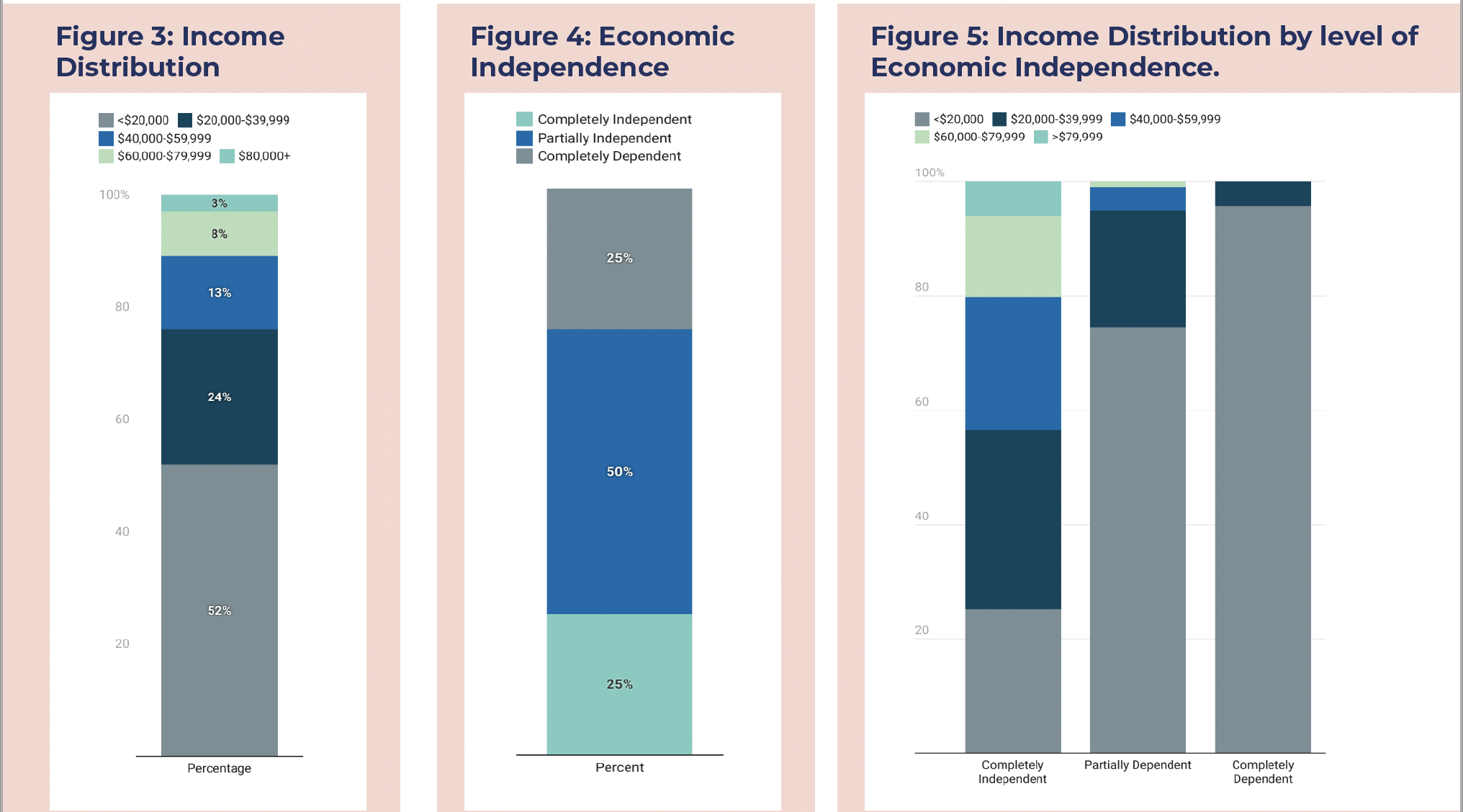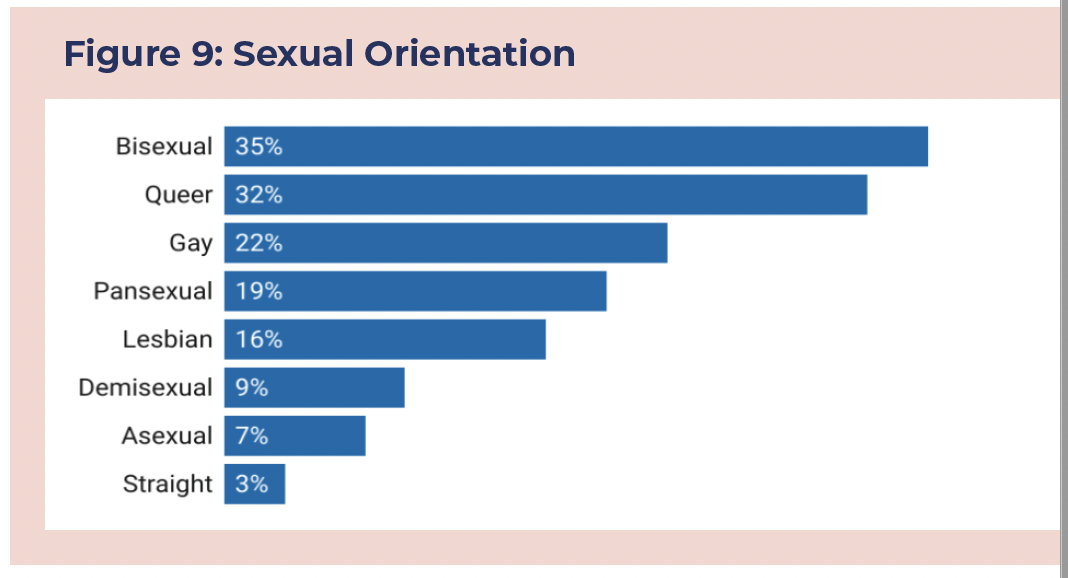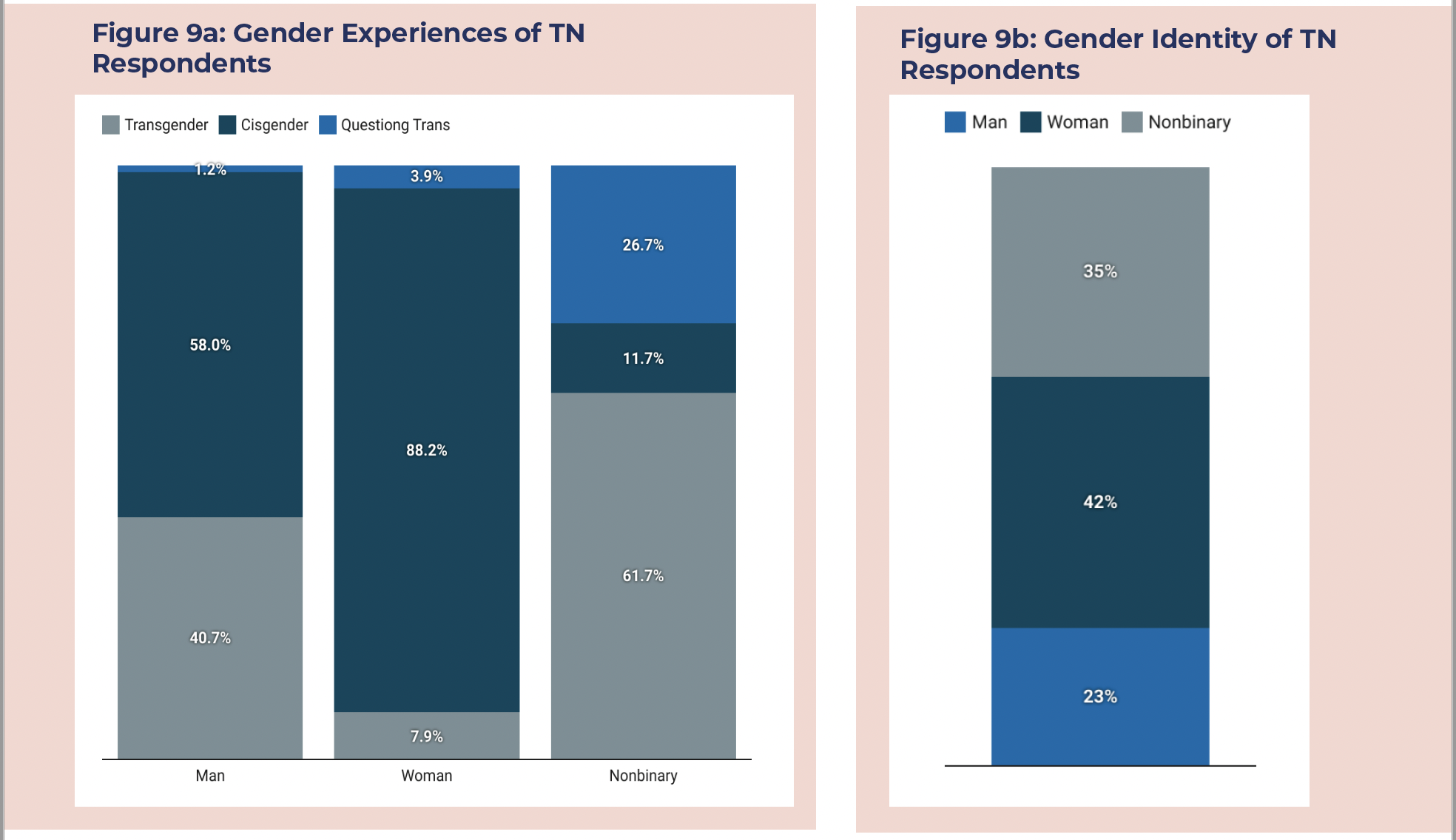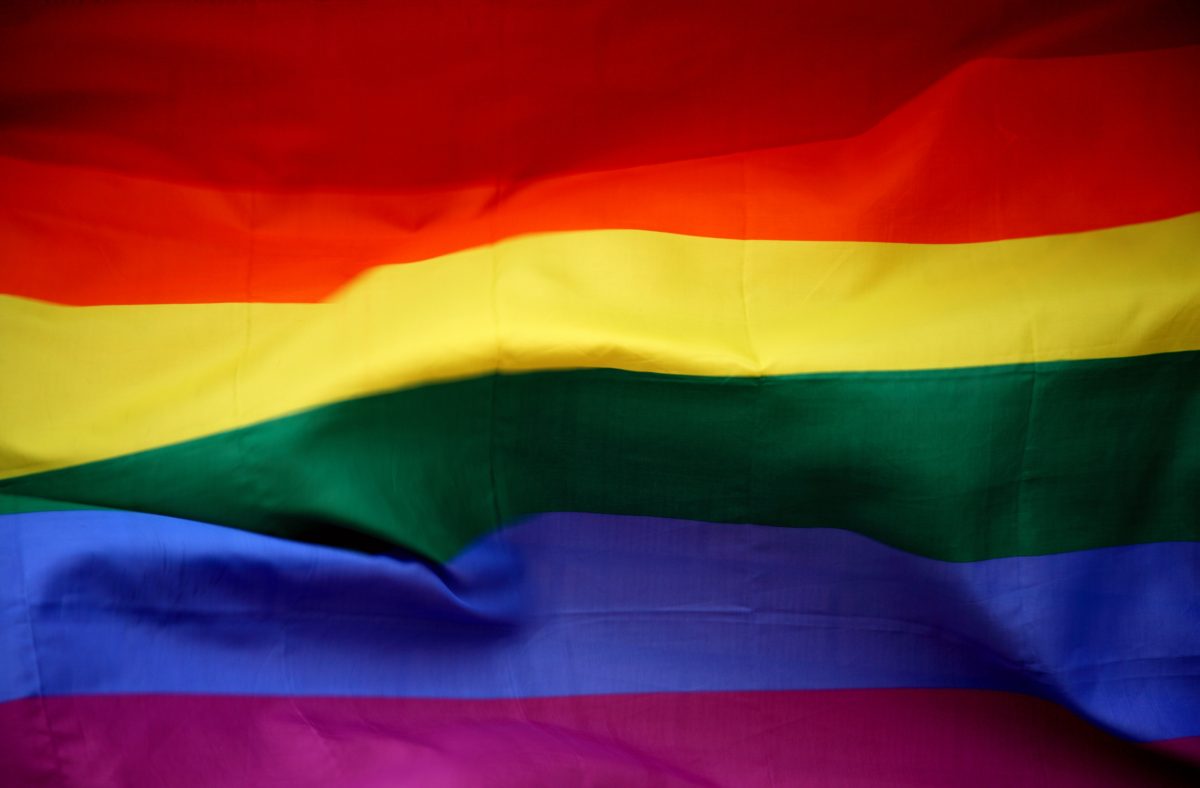LGBTQ Tennesseans are mostly young, poor, bisexual, and cisgender, and they face a “hostile” political climate and steep challenges to accessing healthcare, have considered suicide, and feel unsafe at school.
These are just a few of the responses from Tennesseans in the latest Southern LGBTQ Experiences Survey. The report is based on surveys conducted in 2021 by the Asheville-based Southern Equality Research & Policy Center and Charlotte-based Campus Pride. The survey collected experiences across many topics from 4,146 LGBTQ adults across 13 states.
Population estimates suggest more than a third of the LGBTQ community lives in the South, the report says, “where they are likely to have fewer legal protections and face more anti-LGBTQ policies than their peers in other parts of the country.” Tennessee is home to about 225,000 LGBTQ people, including about 30,800 people who identify as transgender, the report says.
Tennessee is home to about 225,000 LGBTQ people, including about 30,800 people who identify as transgender.
Southern LGBTQ Experiences Survey
More than half (52 percent) of those who took the survey said they made less than $20,000 per year. The federal poverty guideline for a single-person household is $14,580 per year. Only 25 percent of those surveyed said they were completely financially independent.

As for age, 36 percent reported they were between 18 and 24. The next biggest group (26 percent) was between 25 and 34.

About 75 percent said they had taken some college-level courses. Though, only 25 percent held a college degree and only 15 percent had a graduate or professional degree. The U.S. Census Bureau says nearly 30 percent of all Tennesseeans hold a four-year degree.
Most respondents (35 percent) described themselves as bisexual and 32 percent identified as queer, marking the majority of responses. The rest were gay (22 percent), pansexual (19 percent), lesbian (16 percent), demisexual (9 percent), asexual (7 percent), and straight (3 percent).



The overwhelming majority of survey takers (90 percent) identified as white. This was followed by Black (6 percent), multiracial (4 percent), and 1 percent identified as Middle Eastern or North African, Asian or Pacific Islander, or preferred to self-identify as another racial group.
No matter where you live in Tennessee, LGBTQ Tennesseans are your neighbors, your family, your coworkers, and your community members.
Southern LGBTQ Experiences Survey
“No matter where you live in Tennessee, LGBTQ Tennesseans are your neighbors, your family, your coworkers, and your community members,” reads the report. “LGBTQ Tennesseans deserve to be safe, respected, and celebrated within their communities.”
But they don’t feel that way, especially when lawmakers and politicians are concerned. The majority of survey respondents (43 percent) said their perception of the state’s political climate was “somewhat hostile” while 35 percent said the climate was “extremely hostile.”
Their attitudes make me feel scared and unsafe and at times.
A survey respondent from rural West Tennessee
“Their attitudes make me feel scared and unsafe and at times,” said one respondent from rural West Tennessee. “I stay at home rather than attend public outings due to this fear.”
Federal laws block some discrimination based on gender identity and sexuality. But Tennessee does not have any of its own anti-discrimination laws. In fact, state lawmakers passed a law in 2011 that prevents local governments from passing their own anti-discrimination laws, according to the report. Lawmakers have also passed several laws allowing for faith-based discrimination against LGBTQ people.
One Tennessee law allows those who commit violent crimes against LGBTQ individuals to argue in court that fear and panic regarding a person’s sexual orientation or gender identity was a valid reason for their crime. Another law allows some adoption agencies to refuse adoption to LGBTQ people. The Tennessee General Assembly has also made it harder to change a gender marker on state-issued documents, for LGBTQ children to participate at school, and for trans people to access appropriate healthcare.
Chris Sanders, executive director of the Tennessee Equality Project, said the report shows the “relentless legislative attacks on LGBTQ people in our state with particular attention to the ways that young lives are upended.”
“This deadly obstacle course so callously laid out in a series of traps thwarts what should be a time of growth, support, and joy for far too many.”
Chris Sanders, executive director of the Tennessee Equality Project
“This deadly obstacle course so callously laid out in a series of traps thwarts what should be a time of growth, support, and joy for far too many,” Sander said in the report. “More frustrating is the realization that this catastrophe has always been avoidable because a state’s public policy is a choice. Most directly it is a choice by those in power such as our legislators.
“But it is also a choice by people who enable destructive policy, whether that be the small but vocal group cheerleading for discrimination or the many who tacitly go along with it.”
